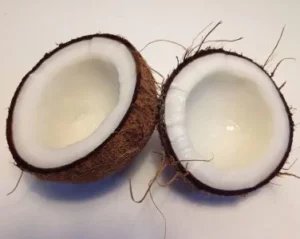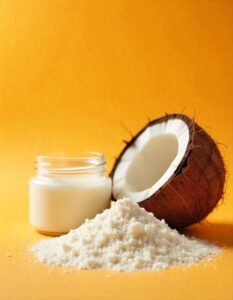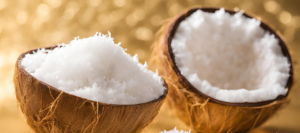The Rise of Premium Coconut Exports: From India to the World

In recent years, there has been a noticeable surge in the demand for premium coconuts worldwide. From the tropical shores of India, a significant player has emerged in the global coconut export industry. With its abundant coconut plantations and a rich heritage in coconut cultivation, India has become a leading exporter of mature coconuts and coconut byproducts. In this article, we will explore the journey of premium coconut exports from India to the rest of the world.
The Versatility of Coconuts
A Staple in Indian Tradition
Coconuts have long been an integral part of Indian culture and traditions. From its use in religious ceremonies to everyday cooking and beauty regimes, the coconut holds a sacred place in the hearts of Indians. With the growing recognition of its health benefits, coconuts have gained popularity worldwide, leading to an increase in demand for high-quality coconut products.
Wide Range of Products
Coconuts offer a wide range of products, making it one of the most versatile crops. Apart from the refreshing coconut water and delicious coconut meat, which can be consumed as a snack or used in cooking, there are numerous other valuable coconut byproducts. These include coconut milk, coconut oil, coconut flour, desiccated coconut, and coconut sugar. Each of these products has its own unique qualities and uses, catering to various industries such as food and beverage, cosmetics, pharmaceuticals, and agriculture.
India’s Advantage in Coconut Cultivation
Ideal Climate and Soil
India’s tropical climate and fertile soil provide the perfect conditions for coconut cultivation. The coastal regions of South India, particularly the states of Kerala, Tamil Nadu, and Karnataka, boast vast coconut plantations. With an average temperature of 27-32 degrees Celsius and abundant rainfall, these regions provide a robust environment for coconut trees to thrive.
Diverse Coconut Varieties
India is home to a diverse range of coconut varieties, each with its own distinct flavor and characteristics. The most popular variety is the “Mature Coconut” or “Copra Coconut,” known for its rich taste and high oil content. Other varieties include the “Tender Coconut” and the “Semi-Husked Coconut,” which are primarily consumed for their refreshing water. The availability of different varieties allows exporters to cater to a wide range of customer preferences.
The Export Process
Quality Control
To ensure the highest quality of exported coconuts, rigorous quality control measures are implemented at every stage of the export process. Government bodies such as the Agricultural and Processed Food Products Export Development Authority (APEDA) closely monitor and regulate the export of coconuts from India. These regulations cover aspects such as hygiene, packaging, labeling, and compliance with international quality standards.
Modern Packaging and Logistics
Exporters adopt modern packaging techniques to preserve the freshness and quality of coconuts during transit. Coconuts are carefully packed in secure containers or vacuum-sealed bags to maintain their taste and aroma. Additionally, advanced logistics networks enable efficient and timely delivery of the coconuts to the desired destinations across the globe.
Certifications and Accreditation
Indian coconut exporters strive to obtain certifications and accreditations to further enhance the credibility and trustworthiness of their products. Certifications such as ISO 9001:2015, FSSC 22000, and organic certifications ensure that the coconuts meet the highest standards of quality, safety, and sustainability. These certifications act as a reassurance for buyers, promoting India as a reliable source for premium coconut exports.
Meeting Global Demand
Expanding Market Presence
Over the years, Indian coconut exporters have successfully expanded their market presence beyond traditional buyers. Countries in Europe, the United States, Canada, the Middle East, and Southeast Asia have shown significant interest in Indian coconuts and coconut products. The versatility of coconuts and the increasing demand for healthy and natural products have contributed to the global growth of Indian coconut exports.
Embracing Sustainability
Indian coconut exporters uphold sustainable and eco-friendly practices in coconut cultivation and processing. Organic farming methods are increasingly being adopted, minimizing the use of harmful chemicals and preserving the natural ecosystem. Sustainable practices not only benefit the environment but also appeal to conscious consumers who value ethical sourcing and production methods.
Conclusion
India’s rich heritage in coconut cultivation, coupled with its favorable climate and diverse coconut varieties, has positioned the country as a leading exporter of premium coconuts and coconut byproducts. The export process, coupled with quality control and certifications, ensures that customers worldwide receive the finest coconuts with guaranteed quality and freshness. As the global demand for coconuts continues to rise, India’s role as a prominent coconut exporter is set to expand further, bringing the tropical goodness of coconuts from India to the rest of the world.
Interested in premium coconut products from India? Check out grofarm ug at thangammanexports.com for a wide range of high-quality coconut offerings!
Note: All images used in this article are for illustrative purposes only and do not represent the actual products mentioned.



